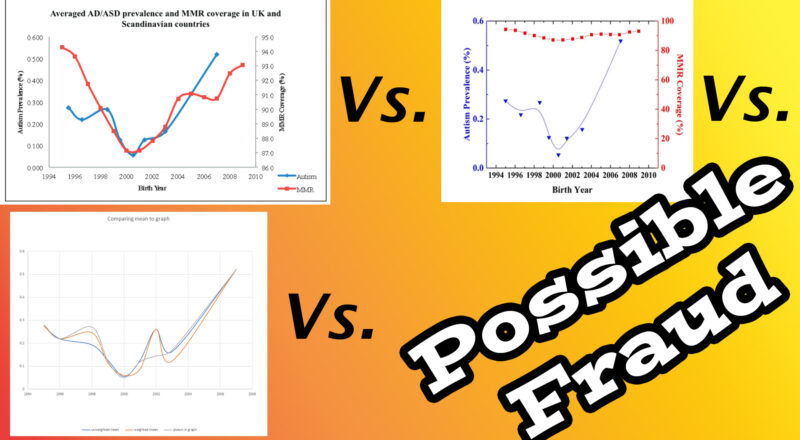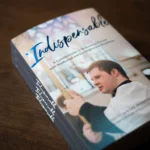We need to distinguish between religious and conscience exceptions. They have been confused in the debate about exemptions from vaccine requirements. I think even a brief examination would find this equivocation faulty. This argument is that due to Catholic teaching on the freedom of conscience, any conscience exemption is a religious exemption. Given that freedom of conscience is most developed in relation to freedom of religion, taking that same principle, one could conclude that a person can get a Catholic religious exemption because the Qur’an says so and they are Muslim. (Obviously, that is faulty, but that shows the logic is faulty.)
It is important to distinguish between conscience and religious exemptions. There are a lot of things that Catholics can believe in conscience but are not based on Church teaching, even a stricter interpretation.
I will begin with an example and a bit on the development of the teaching on conscience then note the relationship with vaccine mandates.
An Example to Show the Difference

Let’s take an example to show the difference between religious and conscience exemptions. Let’s say a local public school provided lunches on a school trip and asked kids not to bring their own lunch. If the lunch was a ham and cheese sandwich, there would be a clear religious exemption for Jews and Muslims who follow their dietary codes strictly.
A Catholic vegan family could claim a conscience exemption based on the fact they don’t eat animals. But I find it tough to argue that is a religious exemption as nowhere does the Church even recommend veganism in her teaching and she explicitly states eating animals is not sinful. I also doubt veganism is a religion as it has no direct higher power. Some religions may have an understanding of animals that connects them to higher powers and thus require veganism, but this is obviously not a Catholic view.
However, let’s say this was on a Friday: then, a Catholic family who follows the no meat on Friday rule strictly could claim a religious exemption from the ham and cheese sandwich. This is despite the fact that the no meat rule is a recommendation and current rules are quite flexible and far from requiring this.
Now, given the issue is simply a free lunch, I would think the school should allow children to bring their own lunches in accord with their family’s dietary preferences, even if not religious.
But some other matters have less exceptions than a free lunch.
Dignitatis Humanae
The biggest development on conscience in Catholic teaching on conscience was when Vatican II declared religious liberty. It begins:
Man perceives and acknowledges the imperatives of the divine law through the mediation of conscience. In all his activity a man is bound to follow his conscience in order that he may come to God, the end and purpose of life. It follows that he is not to be forced to act in a manner contrary to his conscience. Nor, on the other hand, is he to be restrained from acting in accordance with his conscience, especially in matters religious. The reason is that the exercise of religion, of its very nature, consists before all else in those internal, voluntary and free acts whereby man sets the course of his life directly toward God. (Dignitatis Humanae, 3)
This is the most developed teaching on conscience. The point is that we should respect religious liberty because we should not coerce the conscience. The Church thus teaches a priority of conscience. But this priority of conscience does not authorize every Catholic conscience exemption to thereby become a religious exemption. If it did, then non-Catholics would have Catholic religious exemptions for not being Catholic.
Other Magisterium on the Conscience
A few other magisterial documents note freedom of conscience explicitly or implicitly.
The seal of the confession, which can be explicitly dated back to at least Pope Leo the Great implies a privacy of conscience regarding what was said in confession.
Pacem in Terris by John XXIII addresses it. He states, “Since all men are equal in natural dignity, no man has the capacity to force internal compliance on another.” (par. 48)
Commenting on the 1983 code, Fr. Sarath Chandra Sagar Maddineni, C.SS.R., notes that various canons protect specific rights to privacy such as separating the forums of authority in a seminary or religious institute from the realm of conscience one would have with a confessor or spiritual director. (Cf. Explicit and Implicit Rights Common to All the Faithful in the Code of Canon Law, 74-75)
None of these give an absolute right to conscience independent of all aspects like the common good. One cannot be forced to go against conscience, but certain roles in society would not be open to people with certain judgments of conscience. Nobody would insist a strict pacifist can sign up to be in a fighting division of the military then refuse to carry a gun, but at the same time, we should likely respect such pacifists in either offering a non-combat role (Cf. Hacksaw Ridge) or exempting them from military service. Likewise, nobody has the right to a higher risk job where they refuse to take the precautions that have been proven to reduce the risk in that job.
Vaccines and Conscience
If a person is an anti-vaxxer, they do not cease to be Catholic. I would argue that for most anti-vaxxing is illogical and contrary to science, but the Church does not require one to agree with scientific evidence and logic.
One could present a religious exemption argument for skipping those vaccines grown on fetal cell lines, given that the Church has ruled in 2005, 2008, and 2020, that in such a case, skipping vaccines could be an option. This would already be a tenuous religious exemption as those documents generally encourage vaccination.
However, as no Catholic teaching has ever even suggested that one might skip any medicine due to fetal cell line testing, that would not be a religious exemption. One could try to make a conscience exemption, but this is not a religious exemption. The only line ever in the magisterium that might refer to such a connection in any magisterial document states, “It is morally acceptable to receive Covid-19 vaccines that have used cell lines from aborted fetuses in their research and production process.” The same document explicitly only mentions those using fetal cell lines in production when speaking of those vaccines Catholics might skip.
This document says, “vaccination is not, as a rule, a moral obligation and that, therefore, it must be voluntary.” Voluntary does not mean without consequences. Hard hats are voluntary but if you refuse to wear one, you can’t do certain jobs, for example. “As a rule” also modifies the moral obligation such that it might be a moral obligation for some people in particular circumstances. (For example, it is possible that with one’s experience and training, the only way to provide for your family is working in a hospital, but every local hospital requires this vaccine like they have required every other vaccine for decades. For that specific person, vaccination may be a moral obligation.)
In the US, at least, religious exemptions are respected some places that conscience exemptions aren’t. (This seems reasonable: as the more important being vaccinated is to the situation, the fewer exemptions there would be.) This seems to be the motivation to change the categorization. However, this seems to not be as effective as these people thought. For example, the US military has rejected all 12,000 requests for a religious exemption to COVID vaccines that it has received. (Note: When I wrote this piece, there were no exemptions in any way. Checking before clicking publish, it seems that some military members have won a preliminary injunction against the military punishing them for their unvaccinated status awaiting a full court hearing on the matter.)
Any Religious Exemption
One can ask if any religious exemption to COVID vaccines exists. In general, a religion should refer to some moderate-to-large-sized community sharing a complete set of beliefs held consistently by a believer over time, and those beliefs referring to the transcendent in some way.
If we look at US religions, the only ones that strictly require no vaccines are of the faith-healing or strict providentialist types. This list notes a few. However, even many in that list with theological objections do not ban it as such. The list notes that some Dutch Reformed do vaccinate, but this group is less centralized so individual congregations might vary on the point. Although Christian Science believes in healing through prayer and rejects modern medicine wholesale and seeks conscious exemptions if possible, the church notes, “For more than a century, our denomination has counseled respect for public health authorities and conscientious obedience to the laws of the land, including those requiring vaccination.”
Thus, it would seem that the only Churches with religious exemptions would only apply to strict providentialists among the Dutch Reformed and some small faith-healing denominations that reject modern medicine wholesale. Christian Science believers would submit conscience objections but not strictly oppose vaccination if that exemption were rejected.
Conclusion
Let’s look at the actual type of exemption one is seeking and be honest about it. Just because your conscience rules not to vaccinate, that does not mean you have a religious exemption. Feel free to argue for a conscience exemption. I think in many cases that should be allowed with other preventative measures as the Vatican document noted. However, please don’t claim you have a religious exemption when you do not.
Why This Matters in US Law (Update Jan, 11)
After getting a bit of feedback, I thought I would add a slight addendum. This matters because if we want to preserve greater religious liberty when it actually matters – say for a doctor to refuse to sign birth control prescriptions – we need to make this distinction. If we cry “religious exemption” for things that are not religious, then we will be taken less seriously when we need a religious exemption. This is similar to the boy who kept crying wolf so often that everyone in town assumed he was just playing games when a real wolf appeared. Likewise, if people cry “religious exemption” when it isn’t really religious, then I think we’ll have a harder time being taken seriously when there really is a religious exemption. I make this clarification to protect religious liberty where religions actually teach one should not do something they are being asked to do.










[…] ones that reject all vaccines (thus likely struggle to pass basic training in the military) have religious grounds for rejecting a COVID-19 vaccine. (Non-healthcare, non-medical situations would be good offering a broader conscience exemption, as […]
This is fantastic research! I like how you distinguished and clarified the differences between conscience and religious exemptions specially considering the obfuscations regarding this topic in the West. Appreciate the clarity of the piece, if perhaps a bit uneven in its portrayal of those with clear misapprehensions and reservations in an age of “effective” information warfare, propaganda, and greed, the scope of which has never been seen in recorded human history.
A topic for a different post perhaps.
Hmmm, no. Still not a lab rat for BigPharma, TYVM.
Pfizer, et al, have no respect for your conscience, your religion or your rights protected under law.